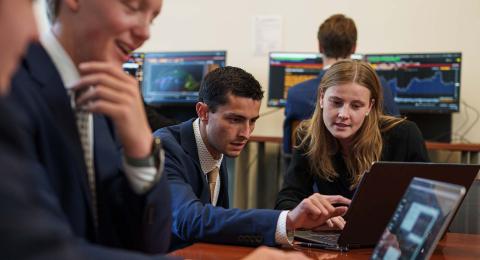The Global Trade and Finance option within the Economics major at UNH is for people who want to know how the world's money moves.
You'll learn how trade rules affect countries, how to guess when money might lose value, and how cash gets around the world.
Dive into real-world data from the World Trade Organization and International Monetary Fund to understand global economic trends. Get the skills you need to work with big companies that do business worldwide.
Contact
Economics
Professor
Email: Robert.Mohr@unh.edu
Phone: (603) 862-3302
Office: Paul College, Room 370j, Durham, NH 03824
Contact
Administrative Coordinator
Email: Laura.Sutherland@unh.edu
Phone: (603) 862-3457
Office: Durham, NH 03824
Explore Program Details
Students interested in our Economics major may also be interested in these advanced degree offerings:
- M.S. Economics (4+1 Accelerated Option)
- Ph.D. Economics
- Full-Time MBA or Online or Hybrid MBA
- Six MBA options are available, but not required: Finance, Information Systems & Business Analytics, Marketing, Global Business, Growth and Innovation, and Healthcare Industry
- Business Analytics Graduate Certification


























